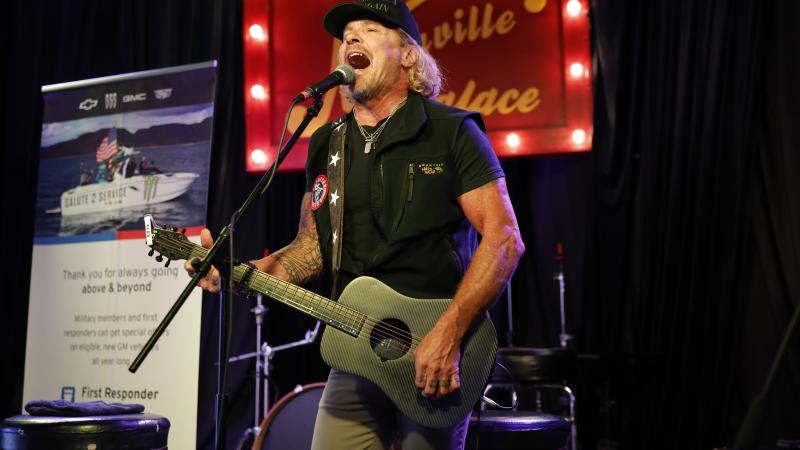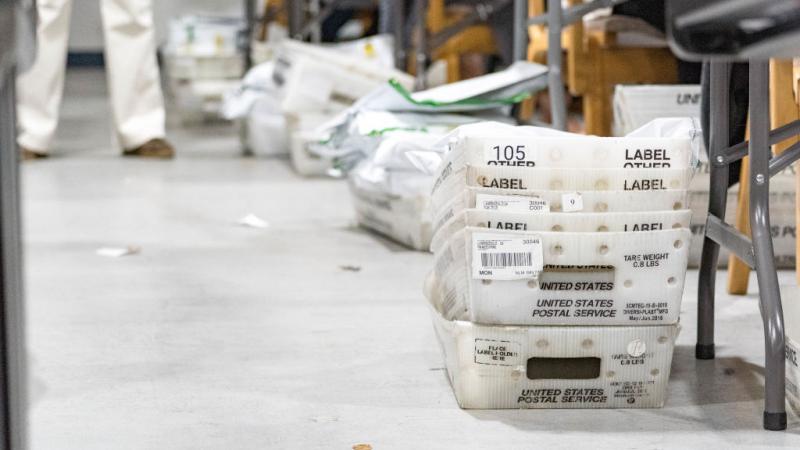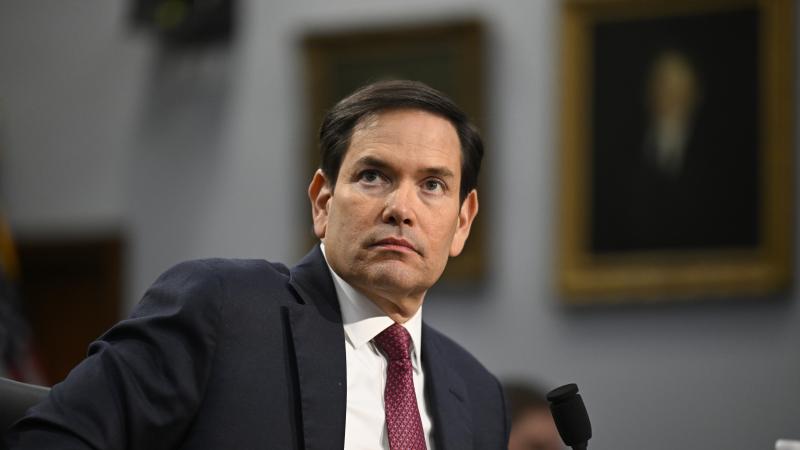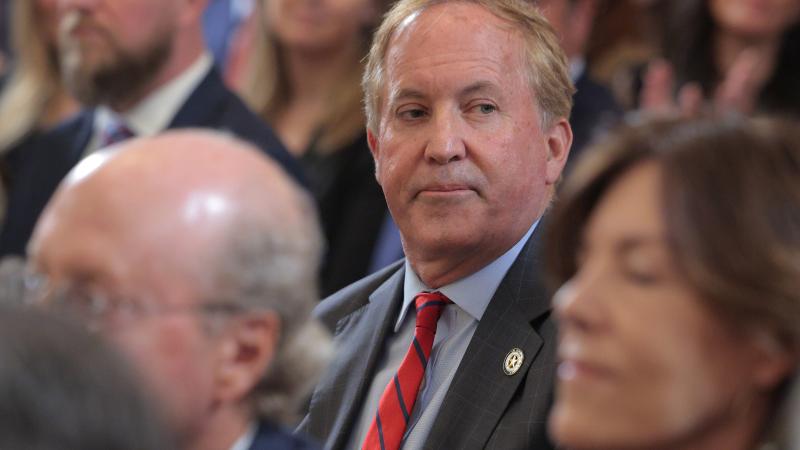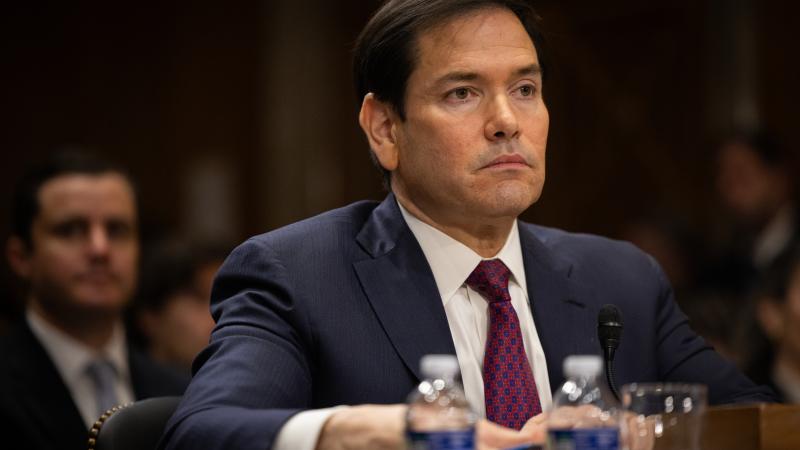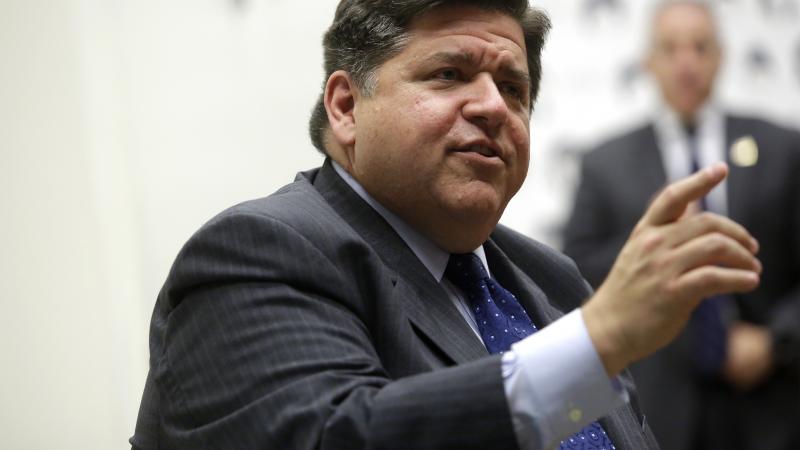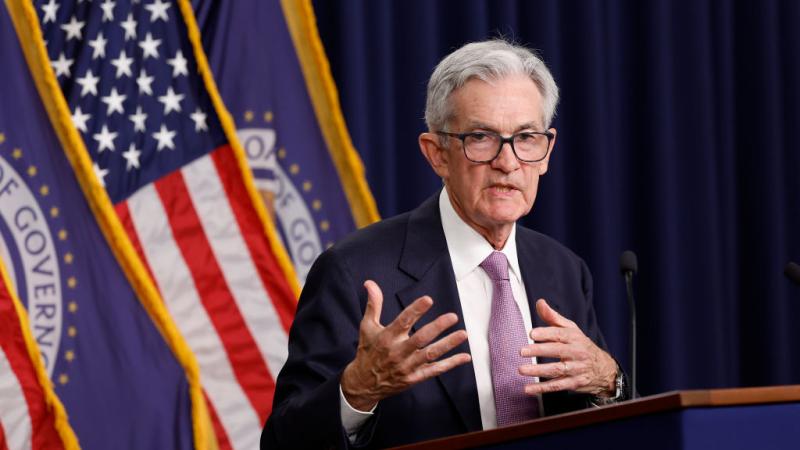'Conversion therapy' at SCOTUS: Overturn ban without hurting other speech rights, libertarians urge
Accepting laws about "who can speak" would let governments "gatekeep all manner of speech, demanding licenses for columnists and reporters, artists and authors, poets and pundits," Institute for Justice warns.
Therapist Kaley Chiles has broad support from First Amendment scholars, religious and pro-life groups, detransitioners and doctors who challenge mainstream medical dogma and the Trump administration at the Supreme Court, which will hear her challenge to Colorado's ban on talk therapy for minors that does not affirm same-sex attraction or gender identity.
She has a surprising frenemy, however: a libertarian law firm that warns her full argument dooms its own First Amendment challenges to regulation of other forms of speech, especially occupational licensing.
The Institute for Justice's take on the Chiles case emerged as perhaps the biggest double-take among more than 50 friend-of-the-court briefs that flooded the high court last week, predicting collateral damage if SCOTUS accepts her "split-the-difference model" rather than send her case back to the lower courts to fix a basic legal error in IJ's view.
Other filers claimed that Colorado's law criminalizes even more speech than appears at first glance, gender-affirming therapists have actually made Chiles' case for her, "professional consensus" is an historically weak basis for speech regulation and talk therapy is actually a repudiation of "conversion therapy," among other arguments.
The case puts Colorado back at the center of America's culture wars, setting up a potential third SCOTUS precedent against the Centennial State's regulation of what professionals can and cannot say and endangering similar minor-therapy laws in 20 states.
It already suffered a major loss in February when a district judge ordered Colorado to stop blocking Christian schools from its universal pre-kindergarten program for their refusal to honor gender identity over sex and a shared-faith requirement for employees.
Christian camps and a gender-critical clothing brand sued the state in just the past month for new childcare licensing rules that require camps to treat children by gender identity and a new law against so-called deadnaming and misgendering transgender people in places of public accommodation, respectively.
Creative professionals in inherently expressive fields such as wedding planning have stronger speech rights thanks to Colorado's losses in SCOTUS cases by Christian baker Jack Phillips and Christian web designer Lorie Smith, though blue states keep testing how far they can go without suffering Colorado's fate.
SCOTUS on Monday accepted pro-life pregnancy centers' challenge to New Jersey Attorney General Matthew Platkin's subpoenas for information on their donors, advertisements and medical personnel, after legal setbacks for other blue states' crackdowns on pro-life centers' speech, most recently Vermont and Delaware, New York twice and Illinois.
California looks like another tempting SCOTUS target – responsible for a 2018 precedent against compelled speech of pro-life centers – now that its state courts have denied Christian baker Cathy Miller the right to avoid making same-sex wedding cakes.
Like saying a 'mugger is attempting to make a living'
While the 10th U.S. Circuit Court of Appeals "broke with this Court’s traditional speech-conduct standard" by declaring the statute only "incidentally" regulates Chiles' speech rather than professional conduct, she dangerously suggested "laws restricting 'who can speak' are somehow more benign than laws restricting 'what can be said,'" IJ's brief claimed.
Months before Chiles' opening brief last week by the Alliance Defending Freedom, her petition to SCOTUS portrayed an 11th Circuit precedent adopted by the 10th Circuit, upholding a Florida dietetics law that regulates dietary advice, as "sensible and broadly applicable– except, it seems" to conversion therapy, IJ said.
This goes further than the "discredited professional-speech doctrine," IJ's brief said, letting governments "gatekeep all manner of speech, demanding licenses for columnists and reporters, artists and authors, poets and pundits."
Hoover Institution senior fellow Eugene Volokh, who retired from UCLA Law last year, said he filed a brief in favor of neither party because the 10th Circuit "relied in part" on his published work on the "speech integral to illegal conduct exception to the First Amendment" and completely botched its proper application.
"Speech cannot lose its protection" until it "sufficiently risks causing or threatening some other nonspeech crime or tort," he wrote. "When psychotherapists counsel patients about how to accept their biological sex or how to avoid same-sex attraction, the psychotherapist is not promoting or threatening any separate crime or tort."
The right-leaning National Association of Scholars said Colorado's argument against Chiles' speech "is ironic in view of the recent movement among progressive therapists to proclaim that therapy is inherently political and therapeutic speech is thus inherently political speech," pointing to articles in The New York Times and therapist publications.
"To compound this irony," many of these advocates "are those who are also most likely to support bans on the one type of therapy at issue here," NAS said.
Another set of First Amendment scholars, whose high-profile names include New York University's Richard Epstein and Notre Dame's Richard Garnett, said the 10th Circuit made a "bald non sequitur" by claiming "the practice of conversion therapy" is not expression.
"One might as logically say that because a mugger is attempting to make a living he is therefore not committing a theft, or that because a pianist is pressing keys she is not playing music," they wrote. The Colorado law is even worse than the California compelled-speech law that SCOTUS struck down because at least the latter didn't censor what pro-life centers could say.
"Allowing states to restrict disfavored speech by recasting it as conduct will have a disproportionate effect on pregnancy resource centers," which face "increasing political attacks and unwarranted scrutiny from lawmakers," Heartbeat International said.
"Politicians have resorted to using privacy concerns as a pretext for targeting" them, such as abortion-rights senators who "baselessly accused Heartbeat of failing to maintain secure data for the women who seek out the network’s services and resources," it said.
Gay porn addiction can't be treated, straight porn addiction can?
The Thomas More Society filed a brief on behalf of licensed psychotherapist Joseph Nicolosi, who previously claimed he warned California and Massachusetts their talk therapy bans relied on a documented fabulist, former Biden administration official Sam Brinton.
The founder of the Reintegrative Therapy Association, whose approach does not intend to change sexual orientation, Nicolosi nonetheless endured a baseless investigation for alleged violation of California's conversion therapy ban even though the complaint was based on his YouTube videos, which explicitly fall outside the law, Nicolosi's brief said.
Such laws are so vague they are likely to stop therapists from accepting minor patients who want to stop their "unwanted, compulsive homosexual pornography use" but not those with heterosexual addictions, he said. "Depending on the jurisdiction," a therapist would also gamble by taking an asexual client "who later wants to explore" a sexual relationship.
Religious groups including the Anglican Church in North America, Church of Jesus Christ of Latter-day Saints and National Association of Evangelicals said talk therapy had been wrongly branded as "conversion therapy," which involves "physically abusive techniques of aversive therapy" as distinct from the "reparative therapy" that rose in the 1990s.
By "endorsing affirmative therapy as the sole legitimate psychotherapeutic approach to sexual orientation and gender identity," the American Psychological Association ignored evidence that other approaches "help some patients live in harmony with their deeply held values," they said.
The statute functionally excludes "certain religious denominations, confessions, or creeds from an important corner of the counseling profession," the brief said. It recalls pre-revolutionary English law, which "excluded Catholics who refused to take particular oaths renouncing Catholic doctrines or participate in Anglican religious services from teaching school or practicing law."
The U.S. Conference of Catholic Bishops said Colorado was trying to shut down an unavoidable debate on "how to live" in contemporary society, in which some people "decide quickly on their views regarding sexual morality" while others "deliberate extensively, sometimes even changing their perspectives over time," often in consultation with others.
"And regardless of what their individual convictions on this topic may be, people frequently seek professional counseling to clarify their views and to help align their lives accordingly," it said.
Invitation to malpractice, criminal child abuse liability
The 10th Circuit downplayed the sweep of the statute, ignoring how it "interacts with other state law to criminalize much more speech," said the American College of Pediatricians, a conservative counterweight to the American Academy of Pediatrics.
The appeals court claimed Chiles could share "her own views" with clients, but the statute's ban on trying to "change behaviors or gender expressions" facially prohibits helping a child "become more comfortable in his/her body" and sharing evidence on "long-term harms of medical transition" and frequency of "natural desistance," the group said.
While the 10th Circuit also said Chiles could refer her minor patients to "service providers outside of the regulatory ambit" to change their sexuality or gender identity, that could expose her to malpractice or even criminal child abuse liability, ACP said.
The Justice Department urged the justices to stop Colorado from circumventing its obligation to show the statute is the least restrictive means to its end, known as strict scrutiny, "by pointing to a putative 'professional consensus' against the speech they seek to ban."
SCOTUS doesn't have to look back further than the 1980s, when the APA still "considered homosexuality a mental disorder – a 'consensus' that could have been invoked to support the opposite rule to the one Colorado defends here," DOJ said.
America's Frontline Doctors compared the gender-affirming consensus to the COVID-19 consensus, which it bucked "as early as October, 2020" by asserting that "experimental mRNA injections are not 'vaccines'" but rather "personal medical treatments only."
This view is "now known to be scientifically and legally correct," AFLDS said, citing a 9th Circuit ruling a year ago. "Voluntary informed consent can never be coerced, subjected to undue influence, nor distorted by censored and incomplete information. Unfortunately, Colorado engaged in unconstitutional and medically dangerous viewpoint discrimination," it said.
The Facts Inside Our Reporter's Notebook
Videos
Links
- Colorado's ban on talk therapy
- more than 50 friend-of-the-court briefs that flooded the high court
- district judge ordered Colorado to stop blocking
- new childcare licensing rules
- new law against so-called deadnaming
- Christian baker Jack Phillips
- Christian web designer Lorie Smith
- SCOTUS on Monday accepted
- most recently Vermont and Delaware
- New York
- twice
- Illinois
- state courts have denied Christian baker Cathy Miller
- IJ's brief claimed
- Chiles' opening brief
- her petition to SCOTUS
- Hoover Institution senior fellow Eugene Volokh
- retired from UCLA Law last year
- National Association of Scholars
- The New York Times
- First Amendment scholars
- Heartbeat International
- talk therapy bans relied on a documented fabulist
- Nicolosi's brief
- Anglican Church in North America, Church of Jesus Christ of Latter-day Saints
- U.S. Conference of Catholic Bishops
- American College of Pediatricians
- Justice Department
- America's Frontline Doctors
- 9th Circuit ruling a year ago

